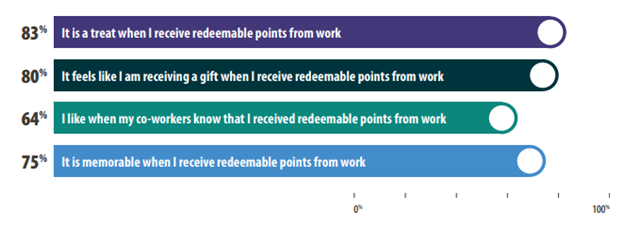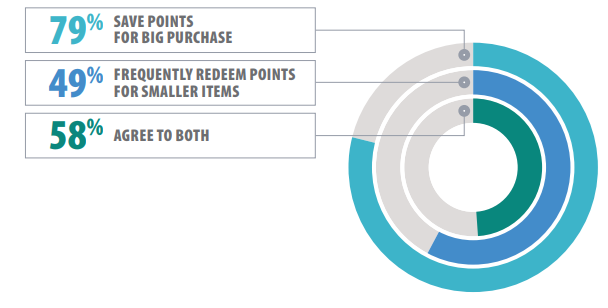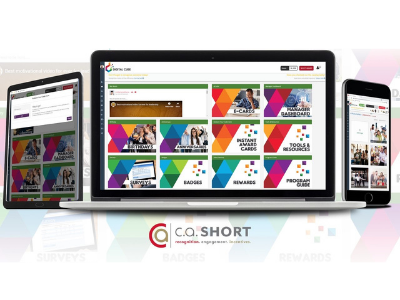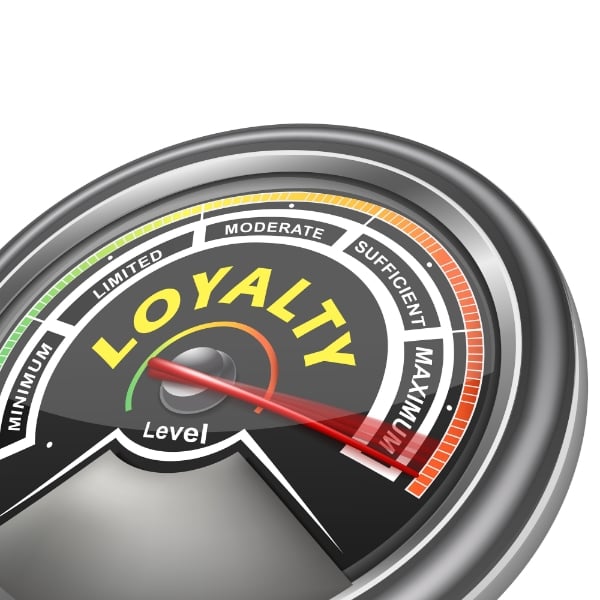The Incentive Research Foundation (IRF) recently published The Psychology of Points report.
Overview of Findings
The IRF survey found that respondents that work for organizations that use a points reward program (vs. no points program) report:
- Higher intrinsic motivation
- Higher organizational identification
- Higher employee engagement
- Greater satisfaction with their rewards and recognition
- Greater preference for working for an organization with a points reward program
From IRF’s literature review and expert interviews, they found that points award participants
- Care more about the recognition, appreciation, and belonging associated with receiving points rewards than what the points are redeemed for
- Find points themselves memorable
- May spend or save their points; use them for big or small dollar items, but receiving the points themselves delivers part of the award (and the positive effects that follow)
Points-Based Recognition Programs Satisfaction
During IRF’s research, they considered whether working for an organization that uses a points reward program is associated with an employee’s overall satisfaction with the awards and recognition they receive and their preference to work for an employer that uses a redeemable points award program.
Overall, the research found points programs appear to reach employees beyond a transactional level.
Points earners perceive their awards as separate compensation and more as “a gift of appreciation.”
A large majority of respondents agreed with the following statements:

The science behind points program attractiveness draws from many aspects of psychology and behavioral science, yet IRF’s interviewees offered the most obvious explanations.
IRF experts speak to the wide scope of potential rewards and the numerous ways leaders from every part of an organization can leverage points programs to focus the power of recognition on their priorities.
It is also important to note, many interviewees noted that the reward itself does not matter as much as the recognition or the points themselves.
No matter what an employee redeems their points for, the true benefit of a points programs is an employee receives recognition, followed by the award of points, and from the reward itself.
Points programs may provide a compound psychological effect.
The range of redemption options and uses associated with points programs keeps the experience novel, preventing the effects of habituation and entitlement.
The anticipation of future reward spikes dopamine each time a person receives recognition and points, compounding the impact.
Are Points-Based Recognition Programs a Good Choice?
IRF’s findings suggest that organizations using points programs enjoy greater workforce motivation, engagement, and identification.
They cannot conclude that points programs cause better motivation, engagement, loyalty, and identification, but the correlations are strong and consistent. Greater recognition, appreciation, and awards should drive these outcomes.
But compared to other forms of recognition and reward, are points-based programs a good choice?
Yes, for a variety of reasons.
- Points-based programs reach close to 100% of an organization’s workforce, not just top-performers.
This makes them more effective at motivating and potentially improving performance across larger groups. - Points programs can also include peer-to-peer recognition.
When employee recognition is limited to leadership and management, the impact is limited. Peer recognition creates a culture of recognition, whether an employee gives recognition to a peer with a simple thank you, or by attached points, more employees give and receive appreciation more often. This also gives employees the opportunity to be recognized twice – once from their manager and once from a peer. - Award options for points-based programs are limitless.
Points can be redeemed for electronics, travel, housewares, jewelry, outdoor, sports & fitness, tools, travel experiences, and much more! Points can also be redeemed for company-branded clothing and swag. - Points programs and employee recognition platforms are flexible.
Employee recognition platforms should be configurable to meet your needs and goals and the needs and goals of any division or manager.
For example, the VP of Sales can award points for sales reps and account managers to reach their goals. Or a safety director can award points to an employee properly wearing their PPE. - Unlike many recognition types, points programs produce endless data.
Employee engagement platforms should give you insight into who is being recognized, for what and by whom. As well as which team, unit, or division leaders are regularly recognizing their people.
An employee engagement platform can motivate employees with awards targeted specifically to their preferences. More importantly, you can link frequency of appreciation to important factors of employee engagement, retention, loyalty, and performance.
Redemption Trends for Points-Based Programs
79% of IRF’s survey respondents agree that they prefer to save their redeemable points to exchange for larger-dollar item(s).
It’s important to note, 58% also agree that they frequently redeem points for small-dollar items.
In fact, almost half of all respondents (49%) agree to both statements Most respondents like to redeem their points for hedonic and memorable items or experiences.

In Short
The Incentive Research Foundation study supports points-based recognition programs to be memorable and effective at motivating employees.
It also aligns with the latest behavioral science, which suggests unique compound benefits are achievable with points reward programs.
Their findings lead to the conclusion that adding points rewards to a broader incentive and reward program is a wise choice.


.png?width=70&name=Untitled%20design%20(11).png)




-Dec-23-2020-01-45-38-40-AM.png)

SHARE